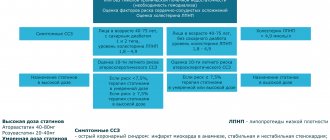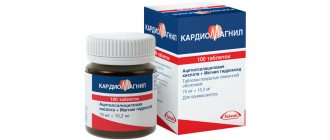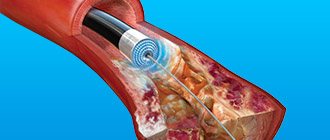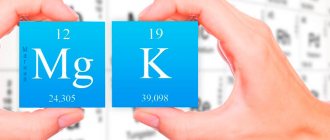Aspirin is a popular drug in the category of non-steroidal anti-inflammatory drugs. It is also used for the prevention of diseases of the cardiovascular system. There is one persistent myth that aspirin thins the blood and is indicated for the prevention of cardiovascular diseases. However, this is not entirely true. Aspirin affects blood clotting and, as a result, the process of thrombus formation. But the thickness of the blood is affected by the amount of hemoglobin and red blood cells. The lower their value, the more liquid the blood in the body.
In this article we will consider in detail the drug aspirin cardio. How does it differ from the usual simple aspirin, what effect does it have on the body and cardiac activity in particular.
Medicine aspirin cardio
In addition to the fact that the drug belongs to the category of NSAIDs and has an antipyretic effect and analgesic effect, aspirin cardio is used in the primary prevention of diseases of the cardiovascular system and in the secondary prevention of myocardial infarction. Reduces the risk of developing the disease with unstable angina. The drug is prescribed for cardiovascular pathologies due to its antithrombotic effect.
The main difference between the drug and regular aspirin is that aspirin cardio is coated with a special enteric coating. Due to this, it is used for long courses in cardiology. This coating allows the active substance to be released in the intestines, thereby minimizing one of the main side effects of aspirin - damage to the gastric mucosa.
Composition of the drug
The active ingredient of the drug is acetylsalicylic acid.
Excipients include corn starch and cellulose powder.
The enteric coating contains polysorbate, sodium lauryl sulfate, talc and other compounds.
Thus, when prescribing the drug, individual intolerance to the components of the composition should be taken into account.
Release form and dosage
The drug aspirin cardio is available only in the form of enteric-coated tablets in dosages of 100 mg and 300 mg.
The number of tablets in a package can be: 20 pcs., 28 pcs., 56 pcs.
ASPIRIN. Stable positions and new opportunities after the 100th anniversary
Antiplatelet drugs, in the absence of contraindications, are an essential component in the treatment and prevention of atherothrombosis. The International Committee for the Analysis of Trials of Antithrombotic Drugs regularly (as large studies are completed) organizes meta-analyses, the results of which have confirmed the effectiveness of aspirin in the treatment of patients with myocardial infarction (MI), acute coronary syndrome (ACS) without ST-segment elevation on the ECG in relation to reducing the risk of developing death and MI. In addition, the effectiveness of long-term use of aspirin in patients who have suffered ACS has been proven in relation to total death, MI and stroke. All this gave reason to include aspirin in the list of mandatory medications for the above pathology and was reflected in practical recommendations for doctors.
Despite the abundance of studies on antiplatelet drugs, until recently there was no clear answer to a number of questions: in particular, about the advisability of using antiplatelet drugs in patients with acute ischemic stroke, in the presence of a permanent form of atrial fibrillation, stable angina, and atherosclerotic lesions of the arteries of the lower extremities. In addition, the issue of the minimum effective dose of aspirin and the advisability of combinations of several antiplatelet agents and antiplatelet agents with anticoagulants has not yet been clarified. These, as well as other problems less covered in the domestic literature, will be the subject of this review.
In 2002, the results of another large meta-analysis were published [1] assessing the effectiveness of antiplatelet drugs, which included 287 studies (195 controlled in more than 135 thousand high-risk patients). The effectiveness of treatment with various antiplatelet agents was compared in 77 thousand patients. The results of the meta-analysis found that the use of antiplatelet drugs reduces the total risk of vascular events by 22%, non-fatal myocardial infarction by 34%, non-fatal stroke by 25%, and vascular death by 15%.
Aspirin remains the most widely used antiplatelet drug today, the clinical efficacy and safety of which has been confirmed by numerous controlled studies and meta-analyses. The mechanism of action of aspirin is associated with irreversible inhibition of platelet cyclooxygenase-1, which results in a decrease in the formation of thromboxane A2, one of the main inducers of aggregation, as well as a powerful vasoconstrictor released from platelets upon their activation. A pooled analysis of the results of 65 studies, which included 59,395 patients at high risk of developing vascular complications, showed that taking aspirin reduced the total risk of MI, stroke, and vascular death by 23% [1]. Prescription of low doses of aspirin (75-150 mg/day) for long-term therapy was no less effective than medium (160-325 mg/day) or high (500-1500 mg/day). In clinical situations, such as unstable angina, myocardial infarction and ischemic stroke, the initial dose should be at least 150 mg/day [1]. To date, few studies have been conducted using very low doses of aspirin (less than 75 mg/day), so the question of the effectiveness of a dose of the drug <75 mg/day remains open.
Aspirin in the treatment and prevention of ischemic stroke
Aspirin in doses from 30 to 1500 mg/day has been used for a long time and has been successfully used in the secondary prevention of ischemic stroke. Direct comparative studies have provided evidence of the equal effectiveness of low, medium and high doses of aspirin in patients with stroke or transient cerebrovascular accident (TCI) [2-4].
In a pooled analysis of the results of 21 studies on the secondary prevention of stroke or stroke, conducted in more than 18 thousand patients, the reduction in the risk of recurrent vascular events with antiplatelet therapy was 22% [1]. This avoided the development of 36 vascular complications, including 25 recurrent strokes and six myocardial infarctions, as well as seven cases of vascular and 15 total deaths per 1000 patients over two years. All these undoubted benefits were accompanied by an increase in the risk of major bleeding to 1-2 per 1000 patients per year. A dose of aspirin of 75 mg/day is considered minimally effective for the prevention of ischemic stroke (as for most cardiovascular diseases).
Until recently, the effectiveness and safety of aspirin administration in the acute phase of ischemic stroke have been little studied. Two large studies, CAST and IST, which included more than 40 thousand patients, confirmed the feasibility of using aspirin in the treatment of acute ischemic stroke [5, 6]. The drug was prescribed within 48 hours from the onset of symptoms of the disease, the dose was 160 and 300 mg/day, respectively, and the duration of treatment was two to four weeks. A pooled analysis of the CAST and IST trials found that immediate aspirin avoided nine deaths and recurrent nonfatal strokes in the first month and 13 deaths and permanent disability in the next six months per 1000 patients treated. The risk of developing hemorrhagic stroke was 2 per 1000 patients, and major bleeding - 3 per 1000.
Aspirin for atrial fibrillation
Atrial fibrillation (AF) is the main cause of embolic complications, primarily stroke, accounting for approximately 50% of cases [7]. The risk of developing ischemic stroke in patients with MA increases with age, as well as in the presence of concomitant cardiovascular diseases. Indirect anticoagulants are the absolute drugs of choice for MA. However, aspirin also turned out to be effective in patients with MA. According to five randomized trials, the reduction in the risk of vascular events with aspirin therapy was 24% [8]. Aspirin was found to be more effective in primary prevention of stroke in patients with MA than in secondary prevention [9].
Currently, aspirin is recommended for the primary prevention of stroke in patients with MA younger than 65 years of age, in the absence of cardiovascular diseases [10]. Also, the prescription of aspirin is possible for patients with an average risk of stroke (2-5% per year), if there is no more than one of the following factors: age 65-75 years, diabetes mellitus, coronary artery disease, thyrotoxicosis. In the presence of more than one of the above average risk factors, as well as left ventricular dysfunction, arterial hypertension, a history of stroke or embolism, mitral heart disease, or aged 75 years or older, the prescription of indirect anticoagulants is indicated [10]. The recommended dose of aspirin in patients with MA is 325 mg/day.
Aspirin for stable angina pectoris
Considering the rather low risk of developing vascular events in stable angina without a history of myocardial infarction (4-8% per year), for a long time it was not possible to obtain convincing evidence of the preventive effect of aspirin in these patients.
The clearest evidence of the effectiveness of aspirin in preventing MI and vascular death in patients with stable angina was obtained in the double-blind, placebo-controlled SAPAT study [11], which was conducted in 2035 patients receiving the β-blocker sotalol at an average dose of 160 mg. Aspirin was prescribed at a dose of 75 mg/day, the observation period was 50 months. When treated with aspirin, compared with placebo, the risk of MI and sudden death decreased by 34%, and vascular death, stroke and overall mortality - by 22-32%.
Aspirin for atherosclerotic lesions of the arteries of the lower extremities
Patients with atherosclerotic lesions of the arteries of the lower extremities (ALAD) represent a group at high risk of developing thrombotic complications. The results of prospective studies have shown that mortality in patients with APANC is two to four times higher than in an age- and sex-matched population [12, 13]. Combined damage to the coronary, brachiocephalic and lower extremity arteries, according to various studies, is observed in 20-50% of cases [14]. Atherosclerotic lesions of the coronary arteries of the heart, according to the results of coronary angiography, were noted in 90% of patients with APANK, while hemodynamically significant stenosis was observed in almost 60% [15]. Among the causes of death in patients with APANK, the first place is taken by ischemic heart disease (IHD) - 55%, followed by stroke - 10%, damage to vascular areas of other localization - 10%, other causes - 25% [12].
In a pooled analysis of the results of 42 studies, including 9214 patients with APANK (including those who had undergone angioplasty or bypass surgery of the arteries of the lower extremities), the administration of antiplatelet drugs reduced the total risk of developing vascular events by 23%, p-0.004 [1].
In the CAPRIE study [16], which compared the effectiveness of long-term use of clopidogrel and aspirin in various high-risk patients, the greatest reduction in the number of vascular events among those receiving clopidogrel was achieved in patients with APANK (23.8% vs 8.7% all patients). The higher effectiveness of thienopyridines (ticlopidine and clopidogrel) in patients with APANK, compared to other antiplatelet agents, can probably be explained by the fact that due to the large extent of atherosclerotic lesions and impaired rheological properties of the blood, the content of ADP released from erythrocytes is significantly increased. Thus, blockade of this platelet activation pathway may result in a greater reduction in the risk of blood clots.
Aspirin in patients with diabetes mellitus
Clinical manifestations of atherothrombosis are the direct cause of death in 80% of patients with diabetes mellitus, of which three quarters of cases are associated with ischemic heart disease. An analysis of nine studies in 4961 patients with diabetes showed that the reduction in the risk of developing vascular complications during antiplatelet therapy was only 7.8%, which is significantly less than among other high-risk patients (22%) [1]. The use of clopidogrel in patients with diabetes mellitus in the CAPRIE study allowed an additional avoidance of 21 vascular events in 1000 patients per year, and 38 in those requiring insulin, compared with aspirin [38]. Taking antiplatelet agents does not increase the risk of hemorrhages in the vitreous body and retina in patients with diabetes mellitus.
Aspirin during coronary artery bypass surgery
Prescribing aspirin in patients who have undergone coronary artery bypass grafting (CABG) can reduce the incidence of graft thrombosis by 50% [17]. However, until recently, there was no evidence of a positive effect of antithrombotic therapy on the risk of developing vascular events in these patients [1]. The majority of patients undergoing CABG are currently high-risk patients, in whom the incidence of postoperative complications exceeds 15% [18]. Moreover, these complications are associated not only with impaired cardiac function, but also with ischemia of the brain, kidneys, and intestines. A limitation to the use of antithrombotic drugs in the postoperative period may be the increased risk of hemorrhagic complications. In 2002, the results of a large, multicenter, prospective study [19] were published examining the effect of aspirin on the incidence of vascular events in more than 5000 patients undergoing CABG. In patients who received aspirin at a dose of 75-650 mg/day within 48 hours of revascularization, there was a significant reduction in the incidence of postoperative death, compared with those who were not prescribed aspirin (1.3% and 4%, p < 0.001, respectively). Taking aspirin was accompanied by a statistically significant reduction in the risk of developing myocardial infarction by 48%, stroke by 50%, renal failure by 74%, and intestinal infarction by 62%. Aspirin did not increase the risk of bleeding, gastrointestinal disorders, infection, or slow down the postoperative healing process. It should be noted that a significant decrease in the number of fatal and non-fatal complications was observed only among patients who received aspirin in the first 48 hours after surgery. Administration of the drug after 48 hours was accompanied by a non-significant reduction in postoperative mortality by 27%. There was also no dose-dependent antithrombotic effect of aspirin. This study confirmed the leading role of activation of the platelet component of hemostasis in the occurrence of dysfunction of vital organs in the postoperative period, as well as the fact that early administration of aspirin can be considered effective and safe in patients who have undergone CABG. However, among patients after CABG there is a high percentage of people with aspirin resistance, which may be due to the activation of cyclooxygenase-2 due to reparative processes.
Aspirin resistance
An important problem that attracts the interest of researchers is aspirin resistance, which is characterized by the inability of aspirin to prevent the development of thrombotic complications, as well as to adequately suppress the production of thromboxane A2. Resistance to aspirin is detected in 5-45% of patients, both among various groups of patients and in healthy individuals. Among the reasons for resistance to aspirin are considered: polymorphism and/or mutation of the cyclooxygenase-1 gene, the possibility of formation of thromboxane A2 in macrophages and endothelial cells via cyclooxygenase-2, polymorphism IIb/IIIa of platelet receptors, activation of platelets through other pathways that are not blocked by aspirin [20 ]. Unfortunately, very few studies have been conducted to evaluate the prognostic significance of laboratory-based aspirin resistance. Thus, the HOPE study showed that in patients with high urinary excretion of 11-dehydrothromboxane B2 (a stable metabolite of thromboxane A2), the risk of developing cardiovascular events was 1.8 times higher [21]. To date, no unified methods have been developed for assessing the antiplatelet effect of aspirin. Nevertheless, further study of this problem will contribute to the development of an individual approach to antithrombotic therapy, as well as increasing its effectiveness.
Aspirin and primary prevention of cardiovascular disease
The practice of primary prevention of cardiovascular diseases over the past 30 years has reduced mortality from coronary causes by 25% [22]. Aspirin is the only antithrombotic drug currently used for the primary prevention of cardiovascular disease. In what cases, when correcting major cardiovascular risk factors, is aspirin prescribed?
Suggestions that regular use of aspirin can reduce the risk of developing myocardial infarction and death from coronary causes appeared back in the 70s. [23-25]. Two large prospective studies were conducted in which aspirin was prescribed to female nurses without a previous coronary history and to patients with suspected CAD [26, 27]. The first study, which lasted for six years, was conducted on 87,678 women aged 34 to 65 years who regularly took one to six aspirin tablets per week [26]. The risk of non-fatal MI and coronary death was significantly reduced by 25%, in addition, there was a trend towards a decrease in death from vascular causes and the number of major vascular complications. It is interesting to note that the positive effect of aspirin was not pronounced in women under 50 years of age - the ratio of the number of vascular events among those who received and did not receive aspirin was 22 and 23 per 100 thousand. At the same time, in older age groups, the effectiveness of aspirin was significantly higher . Among women from 50 to 54 years of age, the incidence of vascular events in those who took and did not take aspirin was 62 and 121 per 100 thousand, and in the group from 55 years of age and above - 112 and 165 per 100 thousand, respectively. In another open-label study [27], among individuals in whom the diagnosis of coronary artery disease was not confirmed, aspirin administration reduced the risk of death in the group aged 60 years and above (5 and 8%, in those receiving and not receiving aspirin, respectively).
To date, there are data from five large controlled studies that examined the use of aspirin for primary prevention. These are American and English studies of doctors, Thrombosis Prevention Trial (TPT), Hypertension Optimal Treatment Study (HOT), Primary Prevention Project (PPP) [28-32].
A combined analysis of the results of American and English studies of doctors [33] revealed a significant reduction in the risk of non-fatal MI by 32%, and all vascular events by 13%. There was no significant effect of aspirin on overall and cardiovascular mortality, but there was a trend towards an increase in the incidence of non-fatal stroke. The dose of aspirin in these studies was 325 mg every other day and 500 mg/day, respectively. In an American study, aspirin administration avoided 4.4 myocardial infarctions per 1000 patients treated with this drug per year in the “older” age group, while the overall reduction was 1.9 per 1000 per year [28]. The effect of aspirin was also greater in individuals with diabetes mellitus, arterial hypertension, smokers and those leading a sedentary lifestyle [28].
In the TPT and HOT studies, aspirin was given at significantly lower doses of 75 mg/day. The TPT [30] included individuals at high risk of developing cardiovascular disease who received warfarin or aspirin monotherapy, a combination of warfarin and aspirin, and placebo. The number of fatal and non-fatal cases of coronary death during therapy with warfarin and aspirin decreased approximately equally - by 20%, while the effect of warfarin was mainly associated with a decrease in the incidence of fatal cases of coronary artery disease (39%), and aspirin - non-fatal cases (32%). The effect of aspirin was significantly greater in subjects with baseline systolic blood pressure ≤ 130 mm. rt. Art. (45% risk reduction) and was practically not observed with blood pressure ≥ 145 mm. rt. Art. (-6%) [34].
The HOT study was devoted to studying the effectiveness and safety of aspirin in patients with arterial hypertension under the conditions of selected antihypertensive therapy [31]. Prescription of aspirin reduced the risk of MI by 36%, and the total number of cardiovascular complications (MI, stroke, cardiovascular death) by 15%. The lowest incidence of cardiovascular events was observed when the mean diastolic blood pressure (DBP) reached 82.6 mm. rt. Art. the minimum risk of cardiovascular mortality at a DBP level is 86.5 mm. rt. Art. Further reductions in DBP were also safe. In patients with diabetes mellitus, the incidence of cardiovascular events on aspirin therapy decreased by 51% when DBP reached 80 mm. rt. Art. As in TPT, the HOT study did not show an increase in the total number of strokes with aspirin therapy.
Somewhat different are the results of the RRR study published in 2001 [32], in which aspirin was prescribed at a dose of 100 mg/day to patients with one or more risk factors for cardiovascular disease. The risk of developing MI and stroke decreased approximately equally - by 31 and 33%. There was a significant reduction in cardiovascular mortality by 44%, and all cardiovascular events (cardiovascular death, non-fatal MI and stroke, transient cerebrovascular accidents, stable angina, peripheral atherosclerosis) - by 23%.
In 2002, the results of a meta-analysis of five controlled trials on the primary prevention of cardiovascular events were published, which included more than 60 thousand patients [35]. It has been shown that the use of aspirin significantly reduces the risk of developing a first myocardial infarction by 32%, and the total number of vascular events by 15%. There was no statistically significant effect of aspirin on total mortality or total strokes, but the numbers were small in each of the studies pooled in the meta-analysis. The incidence of hemorrhagic stroke and gastrointestinal bleeding was higher in patients receiving aspirin. A meta-analysis of primary prevention studies found that aspirin avoided six to 20 myocardial infarctions in 1,000 patients with a 5% risk of vascular events over five years, but could cause between 0 and 2 more heart attacks. hemorrhagic strokes and two to four gastrointestinal bleedings [35].
Based on available data, taking aspirin for the purpose of primary prevention of cardiovascular events is recommended for patients with a risk of developing MI and ischemic stroke that exceeds the risk of possible complications (bleeding, hemorrhagic stroke, gastrointestinal disorders) [36, 37]. This group includes men and women over 50 years of age with at least one risk factor for coronary artery disease (hypercholesterolemia, diabetes mellitus, smoking, arterial hypertension). When prescribing aspirin to patients with arterial hypertension, blood pressure correction is necessary (maintaining DBP ≤ 85 mm Hg). The dose of aspirin considered effective for primary prevention is 75 mg/day.
The history of aspirin use goes back more than 100 years. Today, aspirin remains the most accessible and widely used antiplatelet drug used for both secondary and primary prevention of cardiovascular diseases. The clinical effectiveness of aspirin is confirmed by the results of numerous, controlled studies and meta-analyses. Importantly, the effectiveness of aspirin in reducing the cumulative incidence of myocardial infarction, stroke and cardiovascular mortality in high-risk groups remains independent of the emergence of new meta-analyses. Aspirin therapy can be considered as the standard of antithrombotic therapy, which is prescribed to all patients at high risk of developing vascular complications in the absence of contraindications. Of course, the prescription of aspirin, which blocks one pathway of platelet activation associated with inhibition of cyclooxygenase and the formation of thromboxane A2, does not help solve all the problems that arise during antithrombotic therapy. An important problem is aspirin resistance, which has been identified in a number of patients. Currently, there is an active search for antithrombotic drugs with different mechanisms of action that can enhance aspirin therapy in high-risk patients. The results of the CURE, CURE-PCI, CREDO studies convincingly demonstrated that taking a combination of aspirin and Plavix (clopidogrel) for 9-12 months leads to an additional reduction in the risk of developing vascular episodes in patients with ACS and after coronary balloon angioplasty. The effectiveness of platelet receptor IIb/IIIa inhibitors in interventions on the coronary arteries has also been demonstrated while taking aspirin. Antiplatelet drugs do not affect the coagulation cascade, the activation of which ultimately leads to increased thrombo- and fibrin formation, therefore, the combination of aspirin with indirect anticoagulants, an oral thrombin inhibitor - ximelagatran, as well as a newly created drug - seems promising in terms of preventing cardiovascular episodes. inhibitor of the factor VII/tissue factor complex.
Literature
- McConnel H. Collaborative meta-analysis of randomized trials of antiplatelet therapy for prevention of death, myocardial infarction, and stroke in high risk patients. Br. Med. J. 2002; 324: 71-86.
- Dutch TIA Trial Study Group. A comparison of two doses of aspirin (30 mg vs. 283 mg a day) in patients after a transient ischemic attack or minor ischemic stroke. N.Engl. J. Med. 1991; 325: 1261-66.
- Farrel B., Godwin J. et. al. The United Kingdom transient ischemic attack (UK-TIA) aspirin trial: final results. J. Neurol. Neurosurg. Phychiatry 1991; 54: 1044-54.
- Taylor DW, Barnett HJM et. al. Low-dose and high-dose acetylsalicylic acid for patients undergoing carotid endarterectomy: randomized controlled trial. Lancet 1999; 353:2179-83.
- CAST (Chinese Acute Stroke Trial). Collaborative Study Group. CAST: randomized placebo-controlled trial of early aspirin use in 20,000 patients with acute ischemic stroke. Lancet 1997; 349:1641-9.
- International Stroke Trial Study Group. The International Stroke Trial (IST): a randomized trial of aspirin, subcutaneous heparin, both or neither among 19435 patients with acute ischemic stroke. Lancet 1997; 349:1569-81.
- Laupacis A., Albers G., Dalen J. et. al. Antithrombotic therapy in atrial fibrillation. Chest 1998; 114:579S-89S.
- Segal JB, McNamara RL, Miller MR et. al. Prevention of thromboembolism in atrial fibrillation: a meta-analysis of trials of anticoagulants and antiplatelet drugs. J.Gen. Intern. Med 2000; 15: 56-67.
- Hart RG, Benavente O., McBride R. et. al. Antithrombotic therapy to prevent stroke in patients with atrial fibrillation: a meta-analysis. ANN. Intern. Med. 1999; 131: 492-501.
- Albers G., Dalen J., Laupacis A. et. al. Antithrombotic therapy in atrial fibrillation. Chest 2001; 119: 194S-206S.
- Juul-Moller S., Edvardsson N., Jahnmatz B. et al. Double-blind trial of aspirin in primary prevention of myocardial infarction in patients with stable chronic angina pectoris. Lancet 1992; 340: 1421-5.
- Dormandy J., Mahir M., Ascady G. et al. Fate of the patient with chronic leg ischemia. J. Cardiovasc. Surg. 1989; 30 (1): 50-57.
- Smith GD, Shipley MJ, Rose G. Intermittent claudication, heart disease risk factors, and mortality: The Whitehall Study. Circulation 1990; 82(6): 1925-31.
- Guillot F. Atherothrombosis as a marker for disseminated atherosclerosis and a predictor of further ischemic events. Eur. Heart J 1999; 1(A): 14-26.
- Hertzer NR, Beven EG, Young JR et al. Coronary artery disease in peripheral vascular patients. A classification of 1000 coronary angiograms and results of surgical management. Ann. Surg. 1984; 199: 223-33.
- CAPRIE Steering Committee. A randomized, blinded trial of clopidogrel versus aspirin in patients at risk of ischemic events (CAPRIE). Lancet 1996; 348: 1329-39.
- Antiplatelet Trialist'Collaboration. Collaborative overview of randomized trials of antiplatelet therapy - II: maintenance of vascular graft or arterial patency by antiplatelet therapy. Br. Med. J. 1994; 308: 159-68.
- Mangano DT Cardiovascular morbidity and CABG surgery — a perspective: epidemiology, costs, and potential therapeutic solutions. J.Card. Surg. 1995; 10: Suppl: 366-8.
- Mangano DT Aspirin and mortality from coronary bypass surgery. N.Engl. J. Med. 2002; 347:1309-17.
- McKee SA, Sane DC, Deliargyris EN Aspirin resistance in cardiovascular disease: a review of prevalence, mechanisms, and clinical significance. Thromb. Haemost. 2002; 88: 711-5.
- Eikelboom JW, Hirsh J, Weitz JI et al. Aspirin resistance and the risk of myocardial infarction, stroke, or cardiovascular death in patients at high risk of cardiovascular outcomes. Circulation 2002; 105: 1650-5.
- Hunink MG, Goldman L, Tosteson AN et. al. The recent decline in mortality from coronary heart disease, 1980-1990: the effect of secular trends in risk factors and treatment. JAMA 1997; 277:535-42.
- Hennekens CH, Karlson LK, Rosner B. A case-control study of regular aspirin use and coronary deaths. Circulation 1978; 58: 35-38.
- Hammond EC, Garfinkel L. Aspirin and coronary heart disease: findings from a prospective study. Br. Med. J. 1975; 2: 269-71.
- Jick H., Miettinen OS Regular aspirin use and myocardial infarction. Br. Med. J. 1976; 1: 1057-8.
- Manson JE, Stampfer MJ, Colditz GA et. al. A prospective study of aspirin use and primary prevention of cardiovascular disease in women. JAMA 1991; 266:521-27.
- Gum PA, Thamilarasan M, Watanabe J et. al. Aspirin use and all-cause mortality among patients being evaluated for known or suspected coronary artery disease: a propensity analysis. JAMA 2001; 286: 1187-1194.
- Final report on the aspirin component of the ongoing Physicians' Health Study. Steering Committee of the Physicians' Health Study Research Group. N.Engl. J. Med. 1989; 321: 129-35.
- Peto R., Gray R., Collins R. et al. Randomized trial of prophylactic daily aspirin in British male doctors. Br. Med. J. 1988; 296: 313-6.
- Thrombosis prevention trial: randomized trial of low-intensity oral anticoagulation with warfarin and low-dose aspirin in the primary prevention of ischemic heart disease in men at increased risk. The Medical Research Council's General Practice Research Framework. Lancet 1998; 351: 233-41.
- Hansson L., Zanchetti A., Carruthers SG et al. Effects of intensive blood-pressure lowering and low dose aspirin in patients with hypertension: principal results of Hypertension Optimal Treatment (HOT) randomized trial. Lancet 1988; 351: 1766-62.
- Collaborative Group of the Primary Prevention Project. Low-dose aspirin and vitamin E in people at cardiovascular risk: a randomized trial in general practice. Lancet 2001; 357:89-95.
- Hennekens CH, Buring JE, Sandercock P. et al. Aspirin and other antiplatelet agents in the secondary and primary prevention of cardiovascular disease. Circulation 1989; 80: 749-56.
- Meade TW, Brennan PJ Determination of who may derive the most benefit from aspirin in primary prevention: subgroup results from a randomized controlled trial. Br. Med. J. 2000; 321: 13-17.
- Hayden M., Pignone M., Phillips C., Mulrow C. Aspirin for the primary prevention of cardiovascular events: A summary of the evidence for the US Preventive Services Task Force. ANN. Intern. Med. 2002; 136: 161-72.
- US Preventive Services Task Force. Aspirin for the primary prevention of cardiovascular events: Recommendation and rationale. ANN. Intern. Med. 2002; 136: 157-160.
- Cairns J., Theroux P., Lewis D. et al. Antithrombotic agents in coronary artery disease. Chest 2001; 119: 228S-252S.
- Bhatt DLJ Am. Coll. Cardiol. 2000; 35(Suppl A): 409.
P. S. Laguta, Candidate of Medical Sciences E. P. Panchenko, Doctor of Medical Sciences, Research Institute of Cardiology named after. A. L. Myasnikova RKNPK Ministry of Health of the Russian Federation
Indications for aspirin cardio
- Primary prevention of acute myocardial infarction, taking into account aggravating risks - hypertension, diabetes mellitus, obesity, smoking.
- Prevention after a heart attack.
- Stable and unstable angina (including suspicion of acute myocardial infarction).
- Prevention of stroke (including in patients with transient cerebrovascular accident).
- Prevention of cerebrovascular accidents.
- Prevention of thromboembolism after operations on blood vessels and arteries (bypass surgery, endarterectomy, angioplasty and stenting).
- Prevention of deep vein thrombosis and thromboembolism of the pulmonary artery and its branches (including long-term immobilization as a result of extensive surgery).
Methods of application
The method of administration and dosage regimen of the drug depend on its release form and other factors. The optimal dosage regimen is determined by a specialist based on specific indications. It is advisable to take aspirin cardio tablets orally before meals with plenty of liquid, preferably at the same time, once a day.
The duration of therapy is determined by the doctor. The usually recommended dose is 100 mg 1 time per day, but the approach to the dosage regimen is individual. Depending on the indications, it may increase to 300 mg/day.
Primary prevention of acute myocardial infarction in the presence of risk factors: 100 mg/day or 300 mg every other day.
- The recommended dosage for the prevention of recurrent infarction is 100-300 mg/day.
- For unstable angina, as well as the onset of myocardial infarction, the initial dose is 100-300 mg. In this case, the first tablet is chewed to speed up absorption. The drug should be taken as soon as possible at the slightest suspicion of danger. For a month after the attack, a maintenance dose of 200-300 mg/day is recommended. Further, all treatment recommendations are prescribed by a specialist based on the patient’s vital signs.
- Prevention of stroke and cerebrovascular accident: 100-300 mg/day.
- Prevention of thromboembolism after vascular surgery: 100-300 mg/day.
- Prevention of deep vein thrombosis and pulmonary embolism: 100-200 mg/day or 300 mg every other day.
The compliance of the dosage form of a particular drug with the indications for use and dosage regimen should be strictly observed.
How do you know that the benefits outweigh the harm?
The doctor, with your help, will collect and analyze many factors and then make a decision. You yourself can try to assess your risks using an online calculator developed by American cardiologists.
Remember that arterial hypertension itself is not an indication for prescribing aspirin if the patient does not have a diagnosis of coronary heart or brain disease! On the contrary, poorly controlled, high blood pressure is often a contraindication to the use of aspirin, since sudden increases in blood pressure increase the risk of intracerebral bleeding, and aspirin can significantly increase it.
In addition, aspirin may reduce the effectiveness of some drugs used to treat hypertension, such as enalapril, captopril, lisinopril, perindopril, and beta blockers.
If taking preventative aspirin turns out to be unreasonably dangerous for you, your doctor will suggest other prevention options, such as lifestyle changes or taking statins.
Currently commercially available are predominantly low-dose enteric-coated aspirin tablets. The outer shell “dissolves” only in the small intestine, protecting the stomach from irritation. These tablets must be swallowed whole without chewing.
There are also combination preparations containing the additive magnesium hydroxide. It is believed that magnesium in this combination reduces the harmful effects of acetylsalicylic acid on the mucous membrane of the stomach and intestines.
And don't use aspirin if the tablets smell strongly of vinegar—the medicine has probably gone bad!
In order for aspirin to effectively protect your blood vessels, it is prescribed for daily long-term, usually lifelong use. Most likely, you will not feel any changes in your body after starting treatment - but this does not mean that aspirin does not work!
Contraindications
Express contraindications include:
- allergy to the active substance and components of the drug,
- Gastrointestinal diseases, including erosions, ulcers in the acute stage,
- diseases of the bronchopulmonary system
- hemorrhagic diathesis,
- pregnancy and lactation (the 1st and 3rd trimesters are considered especially dangerous)
- aortic aneurysm
- renal or liver failure
- and children under 15 years of age.
In a shell or without?
Coated aspirin tablets are designed to pass through the stomach without disintegrating until they reach the intestines. The protective coating is thought to allow aspirin tablets to be gentler on the stomach lining, and may be useful for people with a history of gastritis or ulcers who take aspirin daily.
However, some researchers believe there is no evidence that coated aspirin reduces the risk of gastrointestinal bleeding. Moreover, there are a number of publications that such aspirin is less effective for preventing heart attacks.
Special Recommendations
Aspirin cardio and chronic diseases
Particular caution should be exercised when taking aspirin for persons suffering from diseases of the respiratory system. The fact is that taking aspirin causes a narrowing of the bronchi, which can cause so-called aspirin asthma, or provoke asthma, which is in remission.
Aspirin cardio and childhood
When taken in its pure form in children, due to their young age, the concentration of glucose in the plasma can sharply decrease, in parallel with this, the level of ketone bodies in the blood increases, plasma acidification occurs, and fatty acids accumulate in the liver. These metabolic disturbances lead to swelling of tissues and organs.
Children become more than just lethargic. Aggravating symptoms such as cramps, diarrhea, rapid breathing and palpitations may occur. Up to loss of consciousness and severe muscle hypotension. Such conditions in children can be life-threatening, so the drug is contraindicated for them.
Aspirin cardio and alcohol
The combined use of alcohol and aspirin is not recommended. Alcohol and alcohol-containing products are known for their vasodilating properties. But in combination with aspirin, the effect can be most unexpected. The risks of bleeding increase, including in diseases of the gastrointestinal tract, exacerbation of liver diseases or the occurrence of any acute symptoms associated with this organ.
Aspirin cardio and pregnancy
The active substance freely and easily penetrates the placental barrier, which can lead to negative consequences for the fetus.
When used in the first trimester, it leads to the development of a “cleft palate” (cleft palate); in the third trimester, it causes inhibition of labor, premature closure of the ductus arteriosus in the fetus, disruption of the functioning of the pulmonary vessels and hypertension in the pulmonary circulation.
Acetylsalicylic acid is also excreted in breast milk, which increases the risk of bleeding in the baby due to impaired platelet function. Therefore, the advisability of using the drug during pregnancy and lactation should be justified by the specialist making the decision on the prescription.
Drug interactions with daily aspirin therapy
The combination of taking aspirin with anticoagulants can significantly increase the risk of serious hemorrhagic complications. Such concomitant therapy should be carefully discussed with your doctor.
Some medications may also increase the risk of bleeding. Medicines that may interact with aspirin include:
- Heparin
- Ibuprofen (if taken regularly)
- Corticosteroids
- Clopidogrel
- Some antidepressants (clomipramine, paroxetine, etc.)
Taking certain dietary supplements may also increase the risk of bleeding. These include:
- Blueberry
- Capsaicin
- Cat claw
- Evening primrose oil
- Ginkgo
- Omega-3 fatty acids (fish oil)
Contraindications for Aspirin
Prohibitions on taking Aspirin are divided into two types:
- Relative
- Absolute
Taking Aspirin is strictly prohibited if you are allergic to acetylsalicylic acid or other non-steroidal anti-inflammatory drugs. In addition to all this, the drug should not be used if there is an increased tendency to bleeding.
Relative contraindications:
- Bronchial asthma
- Combined use of anticoagulants
- Breast-feeding
- Pregnancy
- Chronic stomach diseases
- Kidney dysfunction
- Diabetes
- Age up to 12 years
If there are relative prohibitions, taking the medicine is possible only after approval by the doctor.
Overdose
Signs of a moderate overdose include:
- Hearing impairment
- Headache
- Confusion
- Dizziness
- Noise in ears
If you reduce the dose of the drug, these symptoms will disappear.
In case of severe overdose, the following occurs:
- Ketosis
- Fever
- Respiratory failure
- Severe hypoglycemia
- Cardiogenic shock
With such symptoms, the patient is hospitalized in a hospital.
Adverse reactions and overdose
While taking the medicine, undesirable reactions may occur:
- increased susceptibility to the constituent components, manifested by skin rash;
- pain in the abdomen.
With regular and frequent use, in rare cases, bleeding from the stomach may begin, which is manifested by the following symptoms:
- anemia;
- malaise;
- unbearable pain in the stomach.
If such signs appear, you should immediately stop taking it and inform a specialist.
An overdose of the drug is manifested by the following symptoms: nausea, vomiting, hearing problems, confused thinking.








